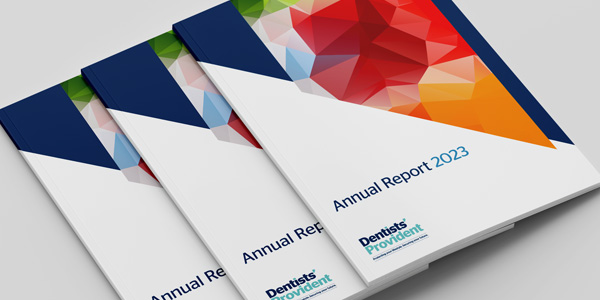
In the second article focusing on sharps injuries - due to their risk in the dental setting - we focus on the potential dangers as well any support and treatment in the event of experiencing an incident.
In May this year Prof. Crispian Scully, CBE, Emeritus Professor at University College London; Specialist in Oral Medicine, stated in a letter to the BDJ, “In the 2014 survey conducted by the British Association of Dental Nurses, just over half of dental nurses in the UK and the Republic of Ireland had had a needlestick injury at some stage in their career”, he continued “A huge body of evidence shows that most of these injuries are avoidable if healthcare workers are provided with the correct readily available protection and procedures. The emotional impact of a needlestick injury can be profound, even when an infection proves not to have been transmitted.”
A couple of years ago Professor Scully, along with Prof L. Samaranayake, also submitted a compendium of current guidelines with a helpful and simple prophylactic flowchart that is still very useful to help general practitioners understand an impact of such an injury.
The dangers
Hepatitis and HIV are real risks for healthcare workers that sustain a sharps injury, and in fact sharps contaminated with an infected patient's blood can transmit more than 20 diseases. Below is an overview of Hepatitis and HIV:
HIV
HIV is a virus which attacks the immune system, so weakens your ability to fight infections and disease. Last year PHE estimated that over 100,000 people in the UK were living with HIV in 2013, and a quarter of them were unaware of their infection, so were at risk of passing it on to others. The number of people who are likely to have acquired their HIV in the UK is still around 1,500 a year.
Hepatitis B (HBV) and C (HCV)
Hepatitis means swelling or inflammation of the liver and the most common causes are viral infections transmitted by contact with the blood or body fluids of an infected person.
HBV
Many people don't realise they have the virus because the symptoms aren’t distinctive, and include feeling or being sick, lack of appetite, flu-like symptoms and jaundice. They may also not develop immediately, as they can take between 40 and 160 days after exposure. HBV is fairly rare in the UK with the Department of Health estimating that there are around 180,000 chronic cases, compared to around 350 million worldwide.
HCV
In most cases, Hepatitis C does not cause any noticeable symptoms until significant damage has been caused to your liver. Again the symptoms can be vague and easily mistaken for something else as they can include flu-like symptoms, feeling tired all the time and depression. NHS choices estimate there are around 215,000 cases in the UK.
Support and treatment
The Health and Safety Executive (HSE) and NHS Choices state that if you injure yourself with a used needle you should:
• Encourage the wound to bleed, ideally by holding it under running water
• Wash the wound using running water and plenty of soap
• Don’t scrub the wound while you’re washing it
• Don’t suck the wound
• Dry the wound and cover it with a waterproof plaster or dressing
HSE also suggests that you need to let your principal know straight away and get urgent medical advice from your occupational health service, or from accident and emergency, as effective prophylaxis are available.
For HIV you can reduce the risk of contracting the disease if you take post-exposure prophylaxis (PEP) or anti-HIV medications within three days. It is a month-long course of emergency medication that tries to stop the infection spreading. These PEP are available free on the NHS if you meet national guidelines. In September last year the Expert Advisory Group on AIDS recommended an update in the drugs used as the post-exposure prophylaxis.
There is no cure for HIV, but there are treatments that mean that most people with the virus live a long and healthy life. AIDS (acquired immune deficiency syndrome) is the final stage of HIV, when your body can’t fight life-threatening infections any longer. But with early diagnosis and effective treatment, most people with HIV don’t go on to develop AIDS.
There isn’t any medication to treat a recently acquired HBV or HCV infection, so all clinical, chair side staff should be vaccinated for HBV and hepatitis A, but as yet there is no vaccine to prevent HCV.
Another point to remember is that “Only NHS performers are eligible for occupational health provided by the NHS, private dentists must make their own occupational health arrangements for themselves and their staff, which can be hard. You can request an assessment of your risk after an incident from UKAP if your physician is unsure about the management or interpretation of the results,” says David Croser, dentist and Communications Manager at Dental Protection.
The Future
Researchers and pharmaceutical companies are looking at new developments all the time for cost-effective solutions for people suffering from Hepatitis and HIV, some of which are detailed below.
The good news about HIV is that the number of adults who are having antiretroviral therapy (ART) has increased over the past ten years from 69% in 2004, to 90% in 2013, and 90% of these people are virally suppressed.
Worldwide the story is even better. UNAIDS (the joint UN programme for HIV/AIDS) announced this summer, that last year’s data showed that the countries that account for 83% of all HIV cases have either halted or reversed their epidemic. This, they believe, could be halted completely by 2030.New HIV infections have fallen by 35% and AIDS-related deaths by 41%. The global response to HIV has averted 30 million new HIV infections and nearly eight million AIDS-related deaths since 2000.
Further new developments are continually being revealed in the press; in July this year the New Scientist reported that for the first time, a child diagnosed with HIV is still virus-free, without drugs, 11 years after stopping taking the antiretroviral. It is the first case where a baby who had received antiretroviral drugs (born to an HIV mother) before stopping (after nearly six years) is still in remission. Credit is being given to the early, regular use of the drug, and scientists are learning more about the virus with cases like this, that could potentially help others in the future.
Different strains of HIV can exhibit the same symptoms, but they develop at different speeds, so can be hard to identify and therefore treat effectively. This summer the US FDA (Food and Drug Administration) approved a new diagnostic that can differentiate between the different strains of the virus therefore facilitating better care for an individual. This product can also be ordered in the UK.
Just under a third of all patients with HCV also have type 1 HIV, however most HCV medications have adverse reactions and compromise their effectiveness when used with HIV treatments, so these people are in a difficult position with their treatment needs. Researchers at the University of California have recently made a breakthrough with a new drugs combination that have since been approved for use in the UK.
And more good news is that NICE has approved two new HCV drugs to be routinely available on the NHS for people with chronic cases. They are available from this year meaning that people have access to safer and more effective drugs. It is likely that within 20 years from the discovery of HCV a cure is now likely for most people with chronic infection of the disease.
Being aware and up to date of the relevant symptoms and treatments can support you and your practice team, to ensure that a seemingly inconsequential ‘scratch’ doesn’t have a life changing effect on an individual’s life.
References available on request.
This article is intended for information only. It is not designed to give financial or medical advice, nor is it intended to make any recommendations of the suitability of our plans for a particular individual. Full details of our contract can be found in our rules on our website www.dentistsprovident.co.uk. Dentists’ Provident Society Limited does not accept liability and responsibility for changes made to this information. Some of the information in this article has been obtained from third parties. While we believe the information to be reliable; we make no representations as to its accuracy and accept no responsibility or liability for any error, omission or inaccuracy in the data supplied by any third party.
If you have any questions, please contact our member services consultants by emailing press@dentistsprovident.co.uk or calling 020 7400 5710.
If you have any questions, please contact our member services consultants by emailing
memberservices@dentistsprovident.co.uk or calling 020 7400 5710.

Our 2024 Annual General Meeting will be held at 91-94 Saffron Hill, London, EC1N 8QP on Friday 24th Ma…
Read more
The 2023 annual report from Dentists’ Provident, a leading income protection provider for dental profe…
Read more
Our next exhibition is the British Dental Conference & Dentistry Show in May, where we look forward to meeting anyone interested in becoming a member or members wanting to discuss their plans.